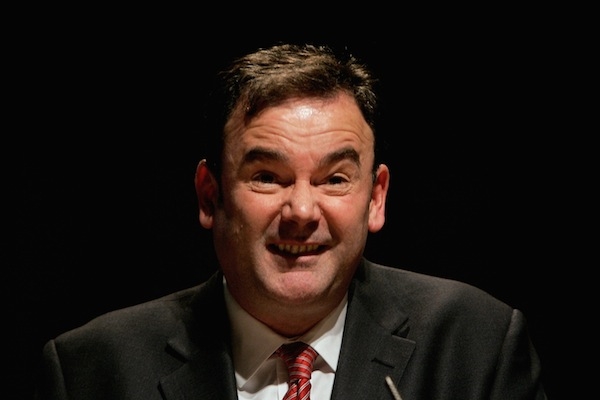Jon Cruddas is frightened. Not of what he describes as the ‘bloody big’ task of leading his party’s policy review, but of the future direction of the Conservative party. Throughout his lunchtime interview with James Purnell at the Labour party conference, Cruddas brought up Britannia Unchained, the latest book from a group of Conservative MPs about how Britain can become a world leader, and about what is currently holding the country back. The party’s policy review chief said the vision presented by those MPs was ‘quite frightening’ because of its stance that the ‘state is totally malign’, and its support for what he described as a world where ‘if you sink or fail it is because of your own calculations’. Those who have followed Cruddas around the fringes from the Liberal Democrats to this Labour conference will note that this is not the first time he’s brought up this book: to him, it’s a sign of the direction of the party he is fighting.
Because there is no critique of this view within the Conservative party, Cruddas told the event, those ‘economic liberal’ MPs will take over the dominant narrative. The previous ‘compassionate Conservatism’ project had collapsed at a quicker rate than he’d ever seen before, he added.
So where does that leave Labour? Cruddas was very clear that the neo-liberal strand within the party that the unions are so keen to kill off was ‘not dead at all’, and that what was really interesting was how virulent that strand still is. He also painted a fascinating picture of where he wants to take the policy review, without actually giving the game away about any detail at all.
One of the elements of the Conservative vision that has caught his eye is the Big Society, and to that end, he has launched a work programme on how Labour can replicate that within its own party ideology. Some of the areas that these programmes will consider will be loneliness, mental health and welfare, and they will create Labour’s own version of the Big Society – going under a different name, of course.
Cruddas himself is clear about how he sees society: made up of gangs, communities, families, friendships and neighbours. But he was also clear that just because something fascinates him, there is no guarantee that it will become a dominant part of Labour thinking for 2015. For him, Labour is ‘my team’, and just as he’s not in this game to become a minister, he’s only here to bring them back into government rather than gain in a more direct way personally. ‘I’m not in this to get my own personal political views made into policy: I think that would be disastrous for the Labour party,’ he joked.







Comments